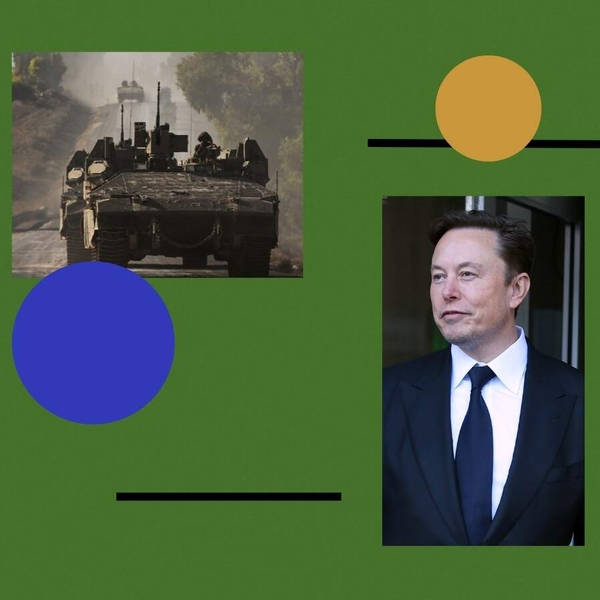
Misinformation & uninformed comments are clogging war coverage; plus, Tupac's legacy
A warning: This episode contains explicit language and mentions of rape.
For the past two weeks, social media has been flooded with coverage and commentary on the conflict between Israel and Hamas. And while the news updates have been devastating, not everything coming across our feeds has been true. We've seen footage pulled from a video game purporting to show a Hamas fighter shooting down a helicopter, and a fake memo from the White House that claimed to announce $8 billion in military aid. This week, host Brittany Luse is joined by NPR correspondent Shannon Bond to learn why we're seeing so much misinformation online. Brittany is also joined by Molly McPherson, a crisis public relations expert, to unpack the hasty public statements about the conflict made by corporate brands and celebrities. They discuss how this may be indicative of a new media landscape that demands commentary and sentimentality.
Then, we turn to Tupac Shakur. He is back in the news 27 years after his death, following the first arrest of a suspect connected to his murder. Joel Anderson, a Slate reporter who covered Tupac for the Slow Burn podcast, joins Brittany to discuss Tupac's complex impact and how the rapper has been able to stay relevant almost three decades after his passing.
Learn more about sponsor message choices: podcastchoices.com/adchoices
NPR Privacy Policy
For the past two weeks, social media has been flooded with coverage and commentary on the conflict between Israel and Hamas. And while the news updates have been devastating, not everything coming across our feeds has been true. We've seen footage pulled from a video game purporting to show a Hamas fighter shooting down a helicopter, and a fake memo from the White House that claimed to announce $8 billion in military aid. This week, host Brittany Luse is joined by NPR correspondent Shannon Bond to learn why we're seeing so much misinformation online. Brittany is also joined by Molly McPherson, a crisis public relations expert, to unpack the hasty public statements about the conflict made by corporate brands and celebrities. They discuss how this may be indicative of a new media landscape that demands commentary and sentimentality.
Then, we turn to Tupac Shakur. He is back in the news 27 years after his death, following the first arrest of a suspect connected to his murder. Joel Anderson, a Slate reporter who covered Tupac for the Slow Burn podcast, joins Brittany to discuss Tupac's complex impact and how the rapper has been able to stay relevant almost three decades after his passing.
Learn more about sponsor message choices: podcastchoices.com/adchoices
NPR Privacy Policy
